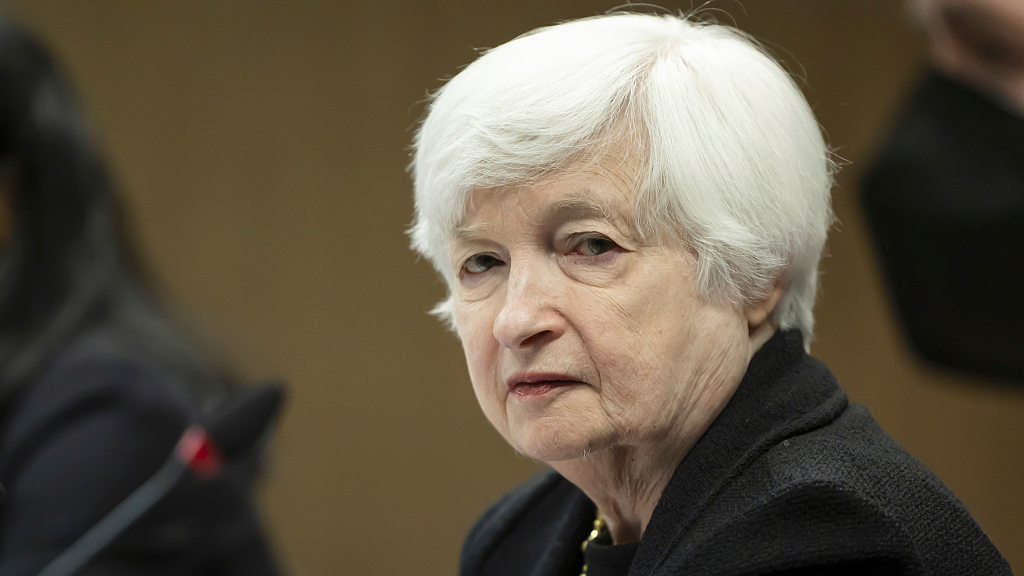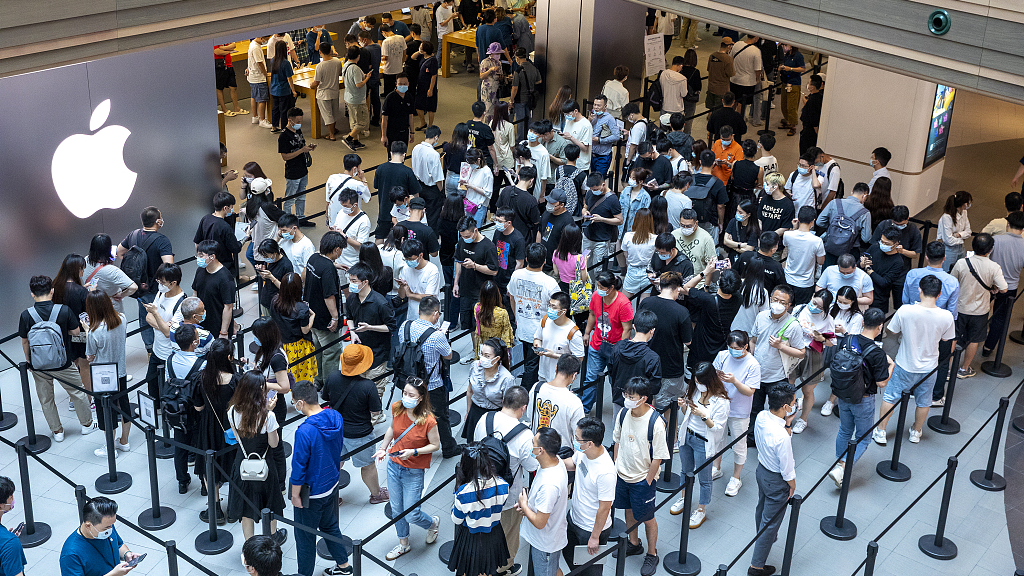
U.S. Treasury Secretary Janet Yellen in Zurich, Switzerland, to attend a bilateral meeting with Chinese Vice Premier Liu He, January 18, 2023. /CFP
U.S. Treasury Secretary Janet Yellen in Zurich, Switzerland, to attend a bilateral meeting with Chinese Vice Premier Liu He, January 18, 2023. /CFP
Editor's note: James Rae is a professor of politics and the director of the Asian Studies Program at California State University, Sacramento. The article reflects the author's opinion, and not necessarily the views of CGTN.
U.S. Treasury Secretary Janet Yellen has offered a generally hopeful position for the priorities of the Joe Biden administration towards China in the remaining two years of his term. Speaking on China-U.S. economic relations at Johns Hopkins University on April 20, she offered some words of encouragement while also revealing the vast obstacles that remain in the bilateral relations.
Certainly, some philosophical movement towards improved economic relations was evident. Yellen rejected calls for a major break on that front, stating, "We do not seek to 'decouple' our economy from China's. A full separation of our economies would be disastrous for both countries."
She also reflected China's position on win-win solutions by emphasizing that there is no winner in zero-sum games. Even more optimistically, she announced that she would visit Beijing at an appropriate time and reassured that "responsible economic relations" should guide the future. This is seemingly a rebuke to the former Donald Trump administration.
If relations sour on the economic front, not much remains to glue together the two great powers since Yellen also emphasized that national security concerns and human rights issues would remain part of the economic equation. She also pushed for greater support for American-led sanctions on Russia. Those two are far thornier topics that could sabotage the hoped-for improvements in the economic sphere.
The playing field is still not level, at least in the eyes of the American leadership. American policymakers refuse to consider that the United States is speaking to an equal. China's state-driven development model was once again harangued. While Yellen acknowledged China's progress from 1980-2010, weaknesses were cited in the property sector, youth unemployment, household consumption, and the future challenges of an aging population and declining workforce. However, these social phenomena are par for the course in the development trajectory of middle-income countries moving forward, and are mostly manageable.
This was juxtaposed with a definitive statement that America is not in decline. The ephemeral, if not imaginary, American dynamism of the recent past hardly provides confidence that the American economy is capable of competing in the new sectors of the 21st century. When U.S. cities are juxtaposed with those in China, cracks in the argument appear, literally.
While American municipalities struggle to fill potholes, China recently connected another link in its comprehensive high-speed rail system, this time from Kunming in its Yunnan Province in the southwest to all the way to Laotian capital Vientiane through the jungles of Laos. Infrastructure tells the story better than some numbers on unemployment.

Customers line up at the entrance of an Apple Store in Shanghai, China on the first day of the iPhone 14 sale, September 16, 2022. /CFP
Customers line up at the entrance of an Apple Store in Shanghai, China on the first day of the iPhone 14 sale, September 16, 2022. /CFP
Besides, while Politico reported on April 18 that "unprecedented rules limiting American investments in China are expected later this month" from the Biden administration, European investment in China has increased significantly in the first quarter. In the first three months of this year, French and German investment in China increased by 635.5 percent and 60.8 percent respectively, according to China's Ministry of Commerce. With European leaders stressing Europe's strategic autonomy, the two European allies of Washington seem to be taking a different approach towards China.
Despite Yellen's positive outlook, with its mention of China's contribution to global economic growth, she recommended that China fall in line with the U.S. leadership. China's model is considered "unfair" and needs further reform in order to abide by the "open, fair, rules-based global economic order" led by the West. This is a return to the Barack Obama-era exclusionary practices at the Bretton Woods institutions and the assertive articulation of a Trans-Pacific Partnership. This inequity in global governance is framed as a "healthy economic competition."
Yet Yellen's suggestion of further "healthy" competition in the private sector and greater market reform does have merit and provides a good starting point for China's post-pandemic restart. Indeed, growth and innovation in both economies do have mutual benefits and could help to create in her words, a "constructive and fair economic relationship." China's tech sector and vast entrepreneurial spirit will be key to sustained growth in the China model.
Overall, Yellen's tone and content were likely as positive as could be expected. Harsher words and policies were very much possible. Thus, this sets the Biden administration's policy towards China in the economic realm squarely towards greater engagement. Yellen's role, as one of the few and most supportive in the administration of improved ties to China, will be key. Her speech offered some hope for a thaw in the frosty Sino-American relationship and at this point, disavowing decoupling is enough.
(If you want to contribute and have specific expertise, please contact us at opinions@cgtn.com. Follow @thouse_opinions on Twitter to discover the latest commentaries in the CGTN Opinion Section.)